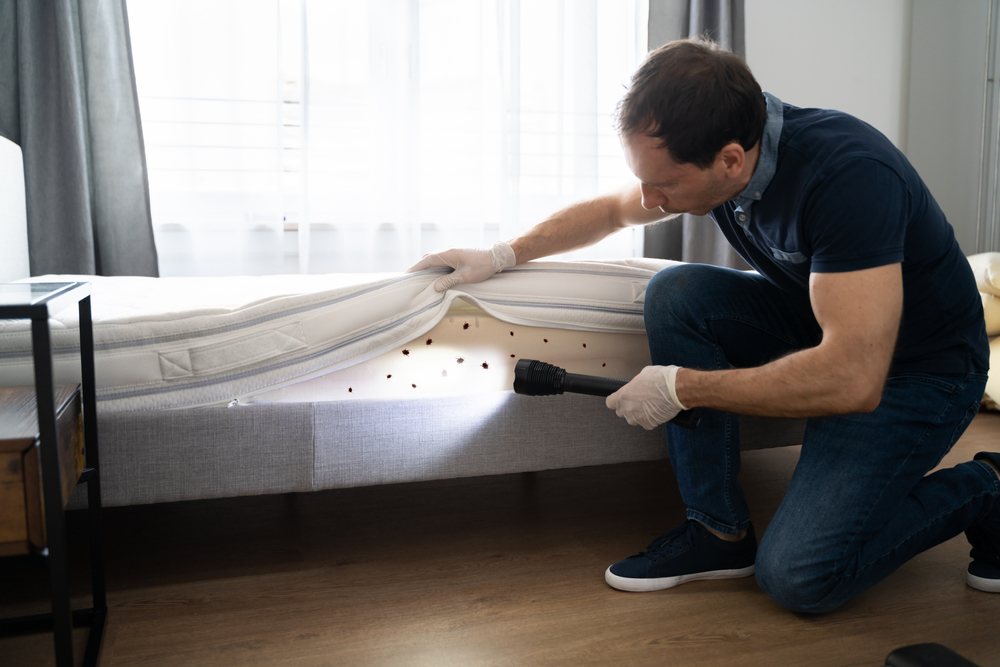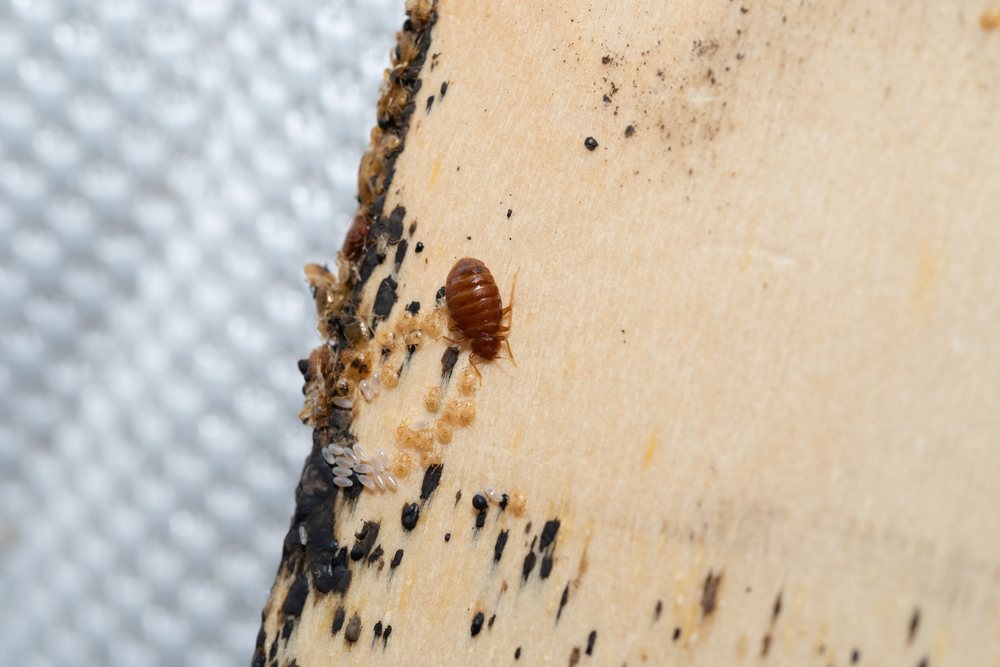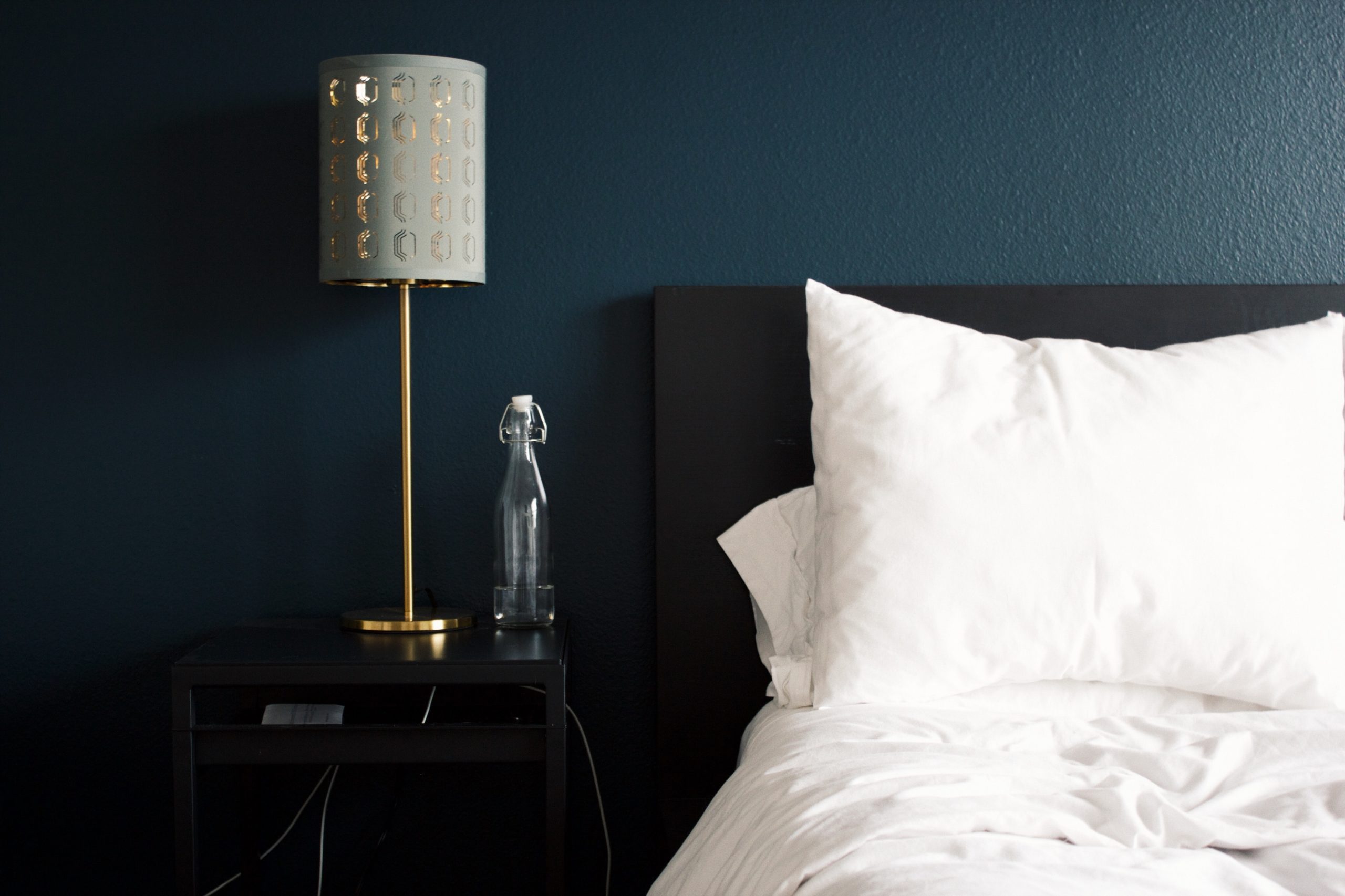Dealing with bed bugs can be stressful.
They’re notoriously hard to get rid of, and a professional bed bug treatment can set you back thousands of dollars.
There’s a multitude of home remedies you can use to kill these annoying little parasites, all of which are far cheaper than hiring an exterminator.
The only downside is that home removal techniques aren’t always effective in killing bed bugs.
(Especially if they’ve established a large colony).
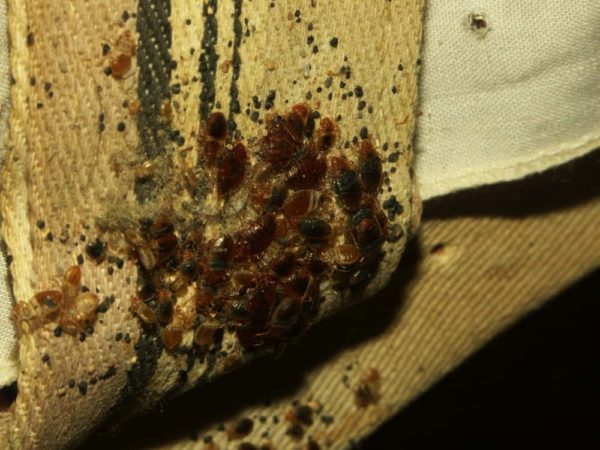
A common household item that does help with bed bug infestations is bleach.
Bed bugs don’t have a built-in resistance to bleach like they do with other chemical pesticides, and some brands can kill bed bugs immediately upon contact.
But bleach doesn’t come without risks…
Here are a 2 potential problems with Bleach.
- It can easily stain most surfaces in your house if you aren’t careful.
2. For people with health problems, the overwhelming scent of chemicals left by bleach can be harmful.
If you do decide to use bleach as a bed bug removal agent, make sure you take the utmost caution when applying it.
Page Contents:
Will Clorox Kill Bed Bugs?
Clorox is one of the most common brands of bleach commercially available. It comes in a multitude of forms: aside from liquid bleach, you can also purchase it as a spray or as a powder.
All 3 types of Clorox are candidates for eradicating bed bugs.
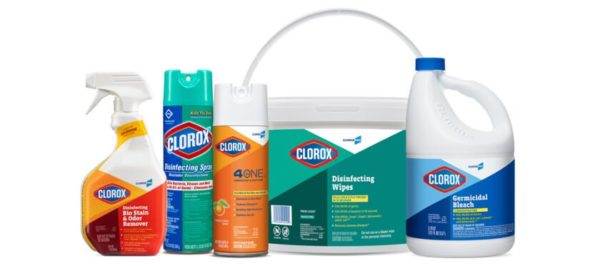
When combined with water, Clorox bleach becomes a corrosive solution. This solution, when used on bed bugs, eats away at the insect’s protective exoskeleton and dissolves the bug’s innards.
(Unfiltered bleach has a similar effect, though it works slightly faster since the water doesn’t dilute it.)
Powdered Clorox functions similarly to diatomaceous earth, a substance commonly used to kill bed bugs and other household insects.
The powder fragments are embedded into the exoskeleton when a bed bug walks over it, eating their way through the outer shell and into the vulnerable insides.
How About Bed Bug Eggs?
Bleach is even more effective on bed bug eggs.
This is because, unlike nymphs and adults, bed bug eggs are immobile and don’t have any form of defense against the toxic chemical.
Bleach dissolves through an eggshell the same way it dissolves through a bed bug’s exoskeleton. Again, unfiltered bleach works slightly faster than bleach diluted with water, but both solutions are effective.
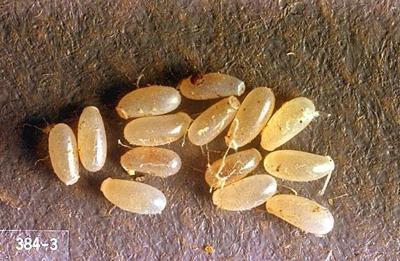
The challenge with removal actually finding the eggs.
Bed bug eggs are incredibly small and slightly transparent. If they were laid in hard to reach area, they can be almost impossible to access.
How to Get Rid of Bed Bugs on Hard Surfaces
Before you can begin applying the bleach treatment…
You’ll need to do some home prep.
Bed bugs love hiding in all sorts of nooks and crannies, so you should clear the area of any clutter.
Here are some ways you can go about preparing for a bed bug treatment:
- Deep Cleaning: A cleaning of your house can deprive bed bugs of many places to hide. Picking up old laundry that’s been lying around and vacuuming remote corners of a room will go far.
- Remove and/or Dismantle Furniture: Bed bugs get their name because they hide in beds, but they’ll happily nest in furniture. Taking apart beds, couches and dressers can expose multiple nests in a short amount of time.
- Heat Treatments: A quick heat treatment can go a long way in weakening a bed bug infestation. Take any clothes or bedding material that might be infested and wash/dry on high heat.
- Sealing Cracks: If you find any cracks that might not be currently inhabited by bed bugs, seal them up. This will deprive any surviving bed bugs of shelter during treatment.
Once you’ve prepped your home, it’s time for the bleach. After you’ve diluted the bleach with hot water, dip a washcloth in the solution.
Scrub down every hard surface in your home with the rag–this will line your floors, walls and furniture with bleach.
If bed bugs are visible, gather some bleach spray and take aim.
(Again, be sure to dilute with water before using it).
How Long Does it Take Bleach to Kill Bed Bugs?
In general, a bleach treatment will kill all exposed bed bugs in a matter of 48 hours. Direct exposure might kill them immediately, but it will take longer for the entire colony to die.
The bleach will dry after a day, and slowly settle in the air. As the scent permeates throughout your home, bed bugs will slowly begin to suffocate.
By the end of the 2nd day, if applied correctly, there shouldn’t be many remaining survivors.
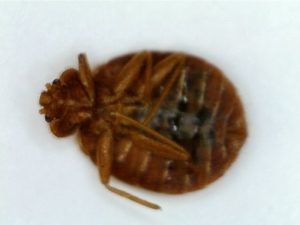
It’s recommended that you leave your home during this time, especially if you or someone else in your home is at risk of suffering health complications due to the bleach.
Prolonged exposure to bleach can cause:
1. Eye irritation
2. Burning sensation on your skin
3. Damage to the respiratory system
This is especially dangerous to children, pets and the elderly.
This is why temporarily vacating your home during treatment is a no-brainer.
It also deprives the bed bugs of a food source.
If you were suffering from bed bug bites prior to using the bleach, leaving your home means you won’t have to worry about more bites for a couple of days.
What Makes Bleach So Powerful?
The effectiveness of bleach on bed bugs is defined by 2 things:
Its scent and its chemical makeup.
As mentioned earlier, the smell of bleach will start to linger in the air as it evaporates. The scent slowly wafts throughout your home, seeping into remote places where bed bugs tend to hide.
After a period of several hours, the bed bugs will suffocate.
The chemical compounds found in bleach also give it deadly potency.
Its active ingredient, “hypochlorous” eats away at the protective proteins which surround the outer membrane of the exoskeleton.
This gives bed bugs fever-like symptoms and ultimately kills them.
These effects are similar to the effects heat treatments have on bed bugs. Intense heat will also break down the protective proteins on the exoskeleton.
With their immune systems compromised, bed bugs will be rendered immobile due to the effects of the bleach. They’ll eventually die, allowing you to sweep them up and throw them away.
What About Alcohol or Vinegar?
If you’re hesitant to try a homemade bleach treatment, there are other options for you to consider. Both rubbing alcohol and vinegar can be used to remove bed bug infestations, though their effectiveness varies.
Rubbing alcohol is an astringent, meaning it’s a drying agent. It works on bed bugs by dehydrating the exoskeleton, then drying out the insides…
Which slowly kills the insect.
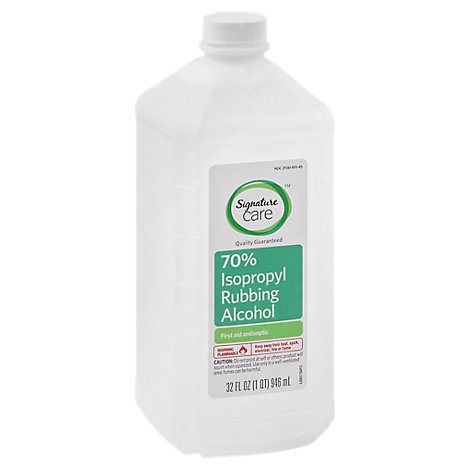
The problem with rubbing alcohol is that it’s more dangerous than it’s worth.
If you have children or pets around, then rubbing alcohol could cause respiratory problems if they inhale it. You would also have to keep the alcohol out of their reach, since rubbing alcohol is poisonous if ingested.
It’s also highly flammable!
Even though it evaporates quickly, you could still start an alcohol fire completely by accident.
In fact, a Cincinnati woman actually started a fire and burned down her entire apartment building by trying to kill bed bugs with alcohol.
If you do use alcohol…
Use it in a well-ventilated area away from open flames or sources of intense heat.
Vinegar works the same way as rubbing alcohol but has the advantage of not being flammable.
However, it takes longer to work.
You’ll have to use the vinegar treatment once a day for 5 days before it can kill bed bugs.
Even then, there’s no guarantee that it will kill every insect. The acetic acids found in vinegar aren’t that strong, so they won’t eat through the exoskeleton of a bed bug like bleach or alcohol would. The scent of vinegar does work as a repellent, but it’s nowhere near powerful enough to suffocate bed bugs.
So, Will Bleach Actually Kill Bed Bugs?
As a home remedy, bleach is one of the more effective bed bug treatment options. It’s cheap, easy to come by, and easy to apply throughout your home.
Just keep in mind the health risks that come with repeated usage of bleach.
Again, prolonged exposure can cause breathing problems and skin irritation, which can turn serious if ignored during the course of the treatment.
If you still aren’t sure about using bleach or similar chemicals, click here for other home remedies to remove bed bugs.
